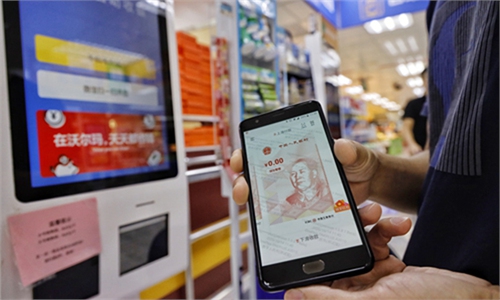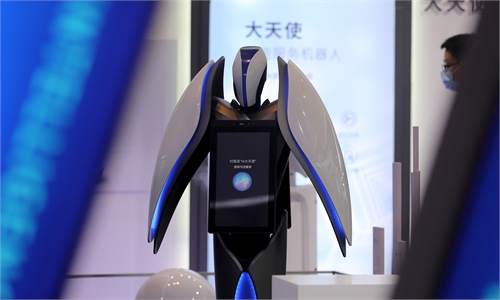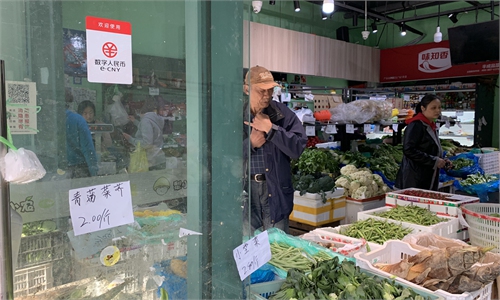Monetary sovereignty of central banks should be respected: former governor of the Chinese central bank

Photo: IC
The monetary sovereignty of national central banks should be respected. Meanwhile, digital technology can still be used to greatly improve convenience, said the former governor of the Chinese central bank on Sunday.
"Perhaps in the long run there will be a move towards monetary integration, but it doesn't work yet," Zhou Xiaochuan, Vice-Chairman of the Board of the Boao Forum for Asia (BFA), former governor of the People's Bank of China (PBC), said on Sunday at a panel for digital payments and digital currency at the BFA in South China's Hainan Province.
Zhou added that each country has its own control over the economy and currency sovereignty. Therefore, if the central bank's digital currency was to be developed, many countries will have their own digital currencies, which are based on their own currency and under their own rules. In this case, the cross-border use of digital currency is very complicated.
He also said that the digital currency in China was not created for cross-border payment, but more for the domestic wholesale scenario.
"The current focus of the development of the digital yuan is to promote its domestic use," said Li Bo, Deputy Governor of the PBC, on Sunday at the Boao Forum.
The PBC participated in the launch of the Multiple Central Bank Digital Currency Bridge (m-CBDC Bridge) project, which aims to explore different ways to achieve cross-border transactions of digital currency among national central banks, Li added.
Central banks are at the forefront of the digital payments and central bank digital currency (CBDC) should be secure and efficient, said Agustín Carstens, General Manager of Bank for International Settlements (BIS) on Sunday during the Boao Forum.
Regarding cryptocurrencies, both Zhou and Li warned that the difference between digital currency and digital asset should be made.
"Bitcoin, for example, is a crypto asset. Crypto assets are investment vehicles or alternative investments instead of currencies. Many countries, including China, are studying what kind of regulatory environment should be suitable for such an investment vehicle. Until we understand what regulations are needed, we will continue to do what we do now," said Li.
Whether it is digital currency or digital asset, it must serve a physical service, Zhou noted.
During the session, Hannah Qiu, Senior Vice President and China CEO of PayPal, said that there will be no direct competition between PayPal and China's more than 200 payment companies, as PayPal's focus is still on cross-border businesses.
"Instead of competing with local payment companies, there will be more cooperation in the future," said Qiu, introducing that PayPal has over 370 million personal users and 20 million corporate users worldwide.



